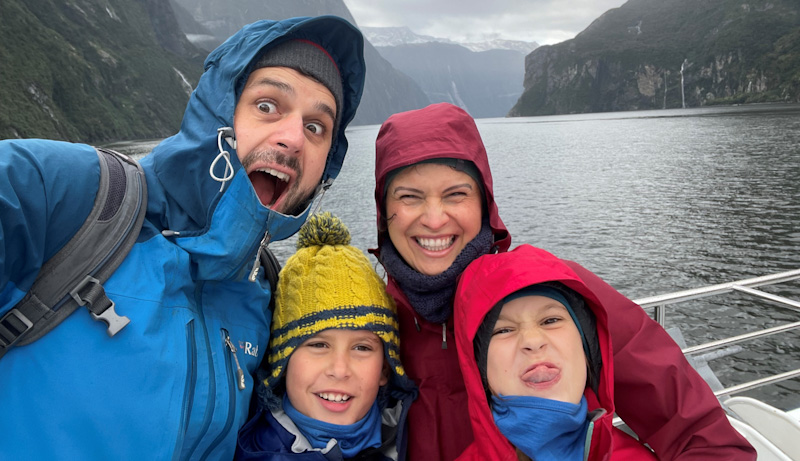Ngā Pī Ka Rere spotlight: Susanna Finlay-Smits, bringing anthropology to biosecurity
Susanna Finlay-Smits is a social scientist at AgResearch who works across numerous BioHeritage programmes. She brings a unique perspective and background to all of her mahi.

Susanna has always been interested in both the humanities and the sciences. Unable to choose between the two, she completed a BA in Anthropology and a BSc in Biochemistry concurrently at the University of Otago.
“Everyone would ask me what on earth I was going to do with anthropology and biochemistry,” says Susanna. “All I knew was I liked them both.”
She brought them together first at an Honour’s level, where she studied medical anthropology, and then at a Master’s level, where she explored cytogeneticists’ understandings of the social consequences and implications of prenatal genetic testing.
“I had a supervisor who was a geneticist and another who was an anthropologist, and I found myself translating between the two,” says Susanna.
After traveling in South America and working in London, Susanna started her PhD at BIOS, the Centre for the Study of Bioscience, Biomedicine, Biotechnology and Society at the London School of Economics. There, she studied the developing field of synthetic biology (which brings together engineers and biologists) through an anthropological lens.
“I looked at the epistemic cultural clashes between these different ways of knowing and doing things.”
After 10 years in the UK, Susanna returned to Aotearoa with her husband and two children to be closer to her parents. She settled in Ōtautahi (Christchurch) and found a job at AgResearch, where she brings her background in anthropology and science to the fields of biodiversity, biosecurity and sustainability.
Since joining AgResearch, Susanna has become involved with numerous BioHeritage projects and programmes. In He Tangata, He Taiao, He Ōhanga (SO3), she leads work that looks at the socio-cultural values that are impacted by biosecurity decision-making.
“For so long, decisions have been dominated by economic value rather than social or cultural values, let alone the intrinsic environmental value of a species,” says Susanna. “We’re looking at how we can broaden our understanding of value and shift decision-making practices so that we don’t just default back to that economic value.”
Susanna also works within the Ngā Rākau Taketake project Mobilising for Action, where she looks at how to create a more inclusive, decolonised biosecurity system.
“Our colonial legacy has shaped the biosecurity system,” says Susanna. “The biosecurity system needs to be different. It needs to have Te Tiriti at the heart of it and not just stuck onto the outside.”
Another piece of work Susanna does within BioHeritage is to look at the impacts of including early career members. This work has led to a more holistic assessment of how successful BioHeritage has been at deliberately broadening the spectrum of who participates in research.
“For example, we know that only 5% of the research workforce in Aotearoa are Māori, and we know that within the Challenge the percentage is significantly better,” says Susanna. “But how do we improve this further and are our Māori colleagues receiving enough support? Answering these questions will help inform the broader science system and give other organisations tools for conducting science in a more inclusive way.”
Thank you, Susanna, for the passion, skill and understanding you bring to all of your research.
Jenny Leonard
September 2022